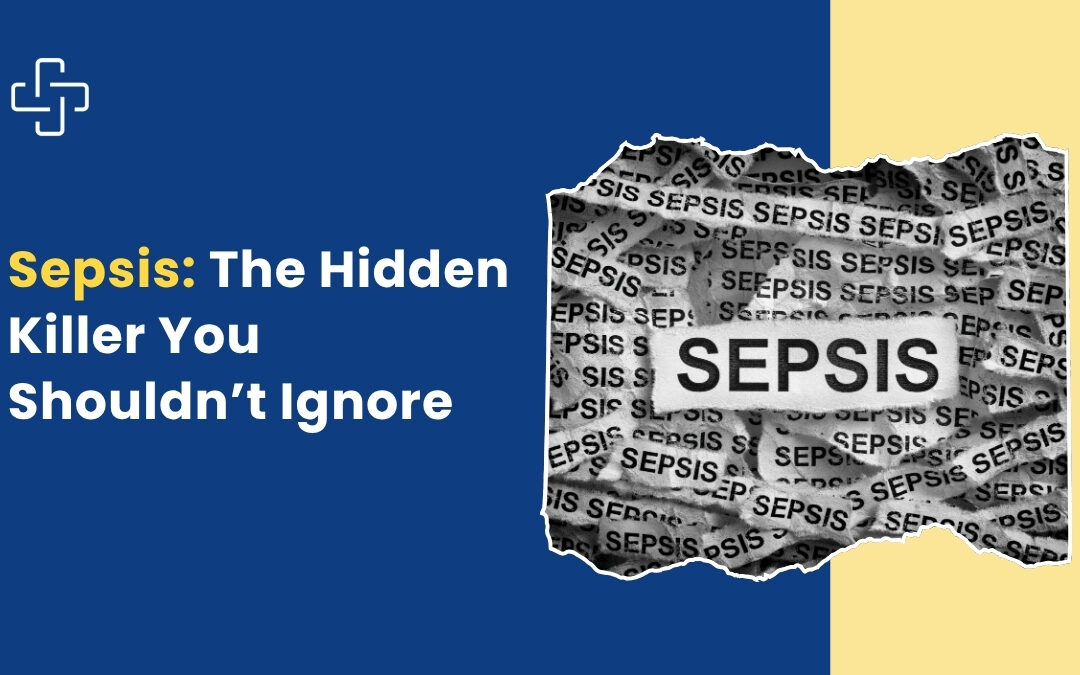Understanding Sepsis: The Hidden Killer You Need to Know About
When we think of life-threatening medical emergencies, heart attacks and strokes often come to mind. Yet there’s another silent condition that claims millions of lives every year, often without people even knowing its name: sepsis.
Sepsis is not a disease in itself but a severe, body-wide response to infection. It happens when your immune system, instead of fighting an infection, triggers widespread inflammation that damages tissues and organs. Without rapid treatment, sepsis can lead to septic shock, multiple organ failure, and death.
A Story Close to Home
Mariam, a young mother in Lagos, gave birth to her second child through a normal delivery. A week later, she began feeling weak, running high fevers, and complaining of abdominal pain. What seemed like a routine postpartum infection quickly escalated. By the time she got to the hospital, her blood pressure was dangerously low and her organs were shutting down. Mariam had developed sepsis. Thanks to swift ICU care and the dedication of her medical team, she survived, but many women are not as fortunate.
Another story is that of Tunde, a 45-year-old mechanic who cut his hand while working. The wound became infected, but he brushed it aside as “just a small injury.” Within days, his body was fighting for survival. His simple cut had spiraled into sepsis. He required intensive care, antibiotics, and weeks of recovery before he could return to work.
These stories are not rare. They remind us how quickly sepsis can turn a manageable infection into a fight for life.
What Causes Sepsis?
Sepsis can arise from any type of infection, but the most common sources include:
- Lung infections like pneumonia
- Urinary tract infections (UTIs)
- Skin infections, even small wounds or abscesses
- Abdominal infections after surgery or childbirth
Anyone can develop sepsis, but newborns, the elderly, pregnant women, and people with weakened immune systems are most at risk.
Recognizing the Symptoms
The tricky thing about sepsis is that it often mimics other conditions, which delays diagnosis. Early symptoms can include:
- Fever, chills, or very low body temperature
- Rapid breathing and heartbeat
- Confusion, dizziness, or extreme fatigue
- Decreased urination
- Cold, clammy, or discolored skin
Doctors often call sepsis a “hidden killer” because its early signs are easy to dismiss. But catching it quickly is the difference between recovery and tragedy.
Can Sepsis Be Prevented?
Not all cases can be avoided, but many can be reduced with simple precautions:
- Treat infections early: don’t ignore fevers, wounds, or unusual symptoms.
- Practice good hygiene: regular handwashing, proper wound care, and safe childbirth practices.
- Vaccinations: keeping up to date with vaccines (like pneumonia and flu) reduces the risk of infections that can trigger sepsis.
Seek medical care early if an infection seems to be worsening, don’t delay getting help.
Caring for Someone with Sepsis
Sepsis requires immediate hospital care, usually in an Intensive Care Unit (ICU). Treatment includes antibiotics, IV fluids, oxygen, and sometimes surgery to remove the source of infection. Even after surviving sepsis, many patients experience long-term effects such as memory problems, fatigue, or recurring infections. Support from family and healthcare providers during recovery is crucial.
Why Awareness Matters
Every year, sepsis kills an estimated 11 million people globally, more than breast cancer, lung cancer, and HIV/AIDS combined. Yet awareness remains shockingly low. Many people, like Mariam and Tunde, never imagine that a fever or small wound could spiral into such a dangerous condition.
Chiron’s Commitment
At Chiron Hospital: ICU & Surgical Centre, we see firsthand the devastating effects of sepsis, but we also see stories of survival and resilience when patients receive timely, specialized care. Our ICU team is equipped with advanced monitoring systems, round-the-clock critical care specialists, and evidence-based treatment protocols to give patients the best chance of recovery.
Sepsis is a hidden killer, but knowledge is power. By recognizing the signs early and seeking care without delay, lives can be saved.
📞 To learn more or book a consultation with our specialists, call +234 909 000 1078 or visit www.chironhospital.org
#SepsisAwareness #ChironCares #EmergencyCareLagos #ICUinLagos
#SaferBirths #MaternalHealth #ChironHospital #NeonatalCare #EveryMotherMatters #EveryBabyMatters #ICUCare


Recent Comments